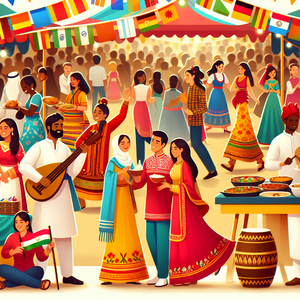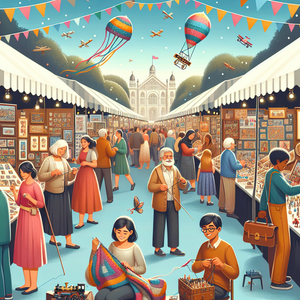The Psychology of Pacman: Unraveling the Addictive Allure of the Classic Game

At its core, Pacman is a game of strategy. Players must navigate a maze while collecting dots and avoiding ghosts, each with their own unique patterns of movement. This element of strategy is a significant part of what keeps players engaged. The game encourages players to develop tactics to maximize their score while minimizing risks. Gamers often find themselves analyzing the behavior of the ghosts, understanding their movements, and planning their routes accordingly. Psychologist Dr. Jane McGonigal, a leading researcher in gaming and its effects on the brain, notes that strategy games like Pacman stimulate critical thinking and problem-solving skills. “Players are not just mindlessly consuming content; they're actively engaging with it,” she explains. This engagement can lead to a sense of accomplishment and mastery, which enhances the overall gaming experience. For instance, mastering the timing of power pellet consumption to eat ghosts or knowing when to make a run for the exits can turn a simple game into a complex strategic challenge.
The Dopamine Rush
One cannot discuss the psychology of gaming without mentioning dopamine—the neurotransmitter associated with pleasure and reward. Each time a player consumes a pellet, eats a ghost, or clears a level, the brain releases dopamine, creating feelings of satisfaction and euphoria. This biochemical response is a significant factor in the addictive nature of games like Pacman. Dr. Mark Griffiths, a psychologist specializing in gaming addiction, emphasizes that the intermittent rewards in Pacman—much like those in gambling—can lead to compulsive play. “The unpredictability of rewards keeps players coming back,” he explains. “Even after a loss, the desire to play again and experience that rush can be overwhelming.” This cycle of reward and anticipation is precisely why many players find themselves returning to Pacman time and again. The game’s design cleverly taps into this psychological mechanism, ensuring that players are rewarded just enough to keep them engaged while still providing the thrill of challenge.
Nostalgia and Cultural Connection
Beyond the immediate gameplay, Pacman holds a special place in the hearts of many players due to its nostalgic value. For those who grew up in the 80s and 90s, Pacman was more than just a game; it was a shared experience. This collective memory fosters a sense of community and connection among players, further enhancing their emotional attachment to the game. Studies have shown that nostalgia can evoke positive emotions and improve mood, making players more likely to seek out games that remind them of their past. In the case of Pacman, its simple graphics and catchy music serve as a time capsule, transporting players back to a more carefree era. This emotional connection can make the experience of playing Pacman even more rewarding, as players reminisce about their childhood while striving for high scores. As we celebrated the 30th anniversary of Pacman, many players reflected on their early experiences, sharing stories of friendly competitions and arcade adventures, further embedding the game in the fabric of their personal histories.
The Social Aspect of Gaming
In today’s digital age, gaming has evolved from a solitary activity to a highly social experience. Players often share their high scores and strategies on social media, creating a sense of competition and camaraderie. Pacman has benefited from this trend, with various online platforms allowing players to challenge friends or compare scores globally. Dr. Sarah Houghton, a social psychologist, notes that the social aspect of gaming can significantly enhance the experience. “When players share their achievements or seek advice from others, they create a community that fosters engagement and motivation,” she explains. This social interaction not only keeps players invested in the game but also enhances the psychological rewards associated with playing. Events like Pacman tournaments or online leaderboards foster a sense of belonging and competition, driving players to improve their skills and connect with others who share their passion.
The enduring appeal of Pacman can be attributed to a complex interplay of psychological factors. Its strategic gameplay encourages critical thinking, while the dopamine rush from achieving goals creates a compelling incentive to play. Coupled with nostalgia and social interaction, Pacman has secured its place as more than just a classic arcade game; it is a phenomenon that continues to engage and captivate players around the world. Whether you’re a seasoned gamer or a newcomer, the psychological allure of Pacman is undeniable, reminding us why this iconic game remains a beloved staple of gaming culture. As we look forward to the next generation of gaming, Pacman's legacy serves as a testament to the profound impact that simple, yet thoughtfully designed games can have on our minds and our lives.
User Experience (UX) Researcher - Gaming
EA, Ubisoft, Riot Games
Core Responsibilities
Conduct user interviews and usability testing to gather insights on player behavior and preferences.
Analyze data from gameplay sessions to identify pain points and areas for improvement in game design.
Collaborate with game designers and developers to implement findings and enhance player engagement.
Required Skills
Strong understanding of qualitative and quantitative research methods, especially in the context of gaming.
Proficiency in tools like UserTesting or Hotjar for gathering user feedback.
Excellent communication skills to present findings to stakeholders.
Game Designer - Behavioral Mechanics
Blizzard Entertainment, Bungie, Epic Games
Core Responsibilities
Design gameplay mechanics that leverage psychological principles to enhance player engagement and satisfaction.
Collaborate with artists and programmers to create intuitive and immersive game experiences.
Prototype and iterate on game concepts based on player feedback and testing results.
Required Skills
Strong knowledge of behavioral psychology, particularly in relation to gaming and reward systems.
Experience with game design software such as Unity or Unreal Engine.
Creativity in developing innovative gameplay elements that resonate with players.
Game Marketing Specialist - Nostalgia Strategy
Nintendo, Atari, Sega
Core Responsibilities
Develop marketing campaigns that tap into the nostalgia factor of classic games to engage target audiences.
Create content for social media platforms that highlight the cultural significance of games and foster community interaction.
Analyze market trends to identify opportunities for re-releases or remakes of classic titles.
Required Skills
Strong understanding of marketing principles, particularly in the gaming industry.
Excellent writing and storytelling skills to craft compelling narratives around nostalgic games.
Familiarity with digital marketing tools and analytics platforms.
Social Media Manager - Gaming Community Engagement
Activision, Square Enix, Capcom
Core Responsibilities
Manage social media channels to foster a vibrant community around gaming titles, encouraging player interaction and feedback.
Create and curate engaging content that reflects current gaming trends and player interests.
Organize online events, such as tournaments or live streams, to enhance community engagement and brand loyalty.
Required Skills
Strong knowledge of gaming culture and trends, particularly in online communities.
Proficiency in social media management tools like Hootsuite or Buffer.
Excellent communication and interpersonal skills to engage with diverse audiences.
Cognitive Scientist - Game Development
Research institutions, game development studios, educational game companies
Core Responsibilities
Research and analyze how game design affects cognitive functions such as memory, learning, and decision-making in players.
Collaborate with game developers to integrate cognitive research findings into game mechanics and narratives.
Publish findings in academic journals or present at industry conferences to influence future game designs.
Required Skills
Advanced degree in cognitive psychology or a related field with a focus on gaming or interactive media.
Strong analytical skills and experience in experimental design.
Ability to communicate complex scientific concepts to non-specialist audiences in the gaming industry.


